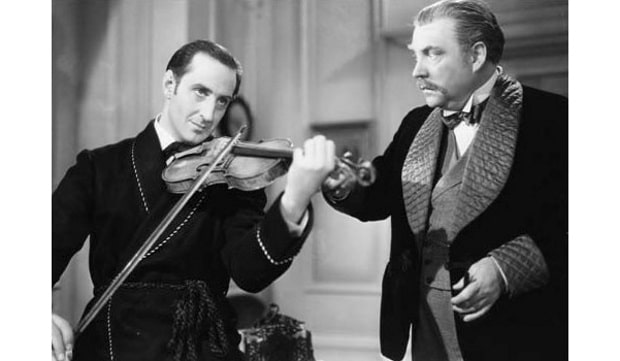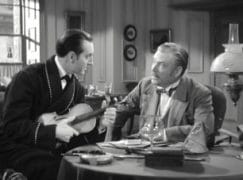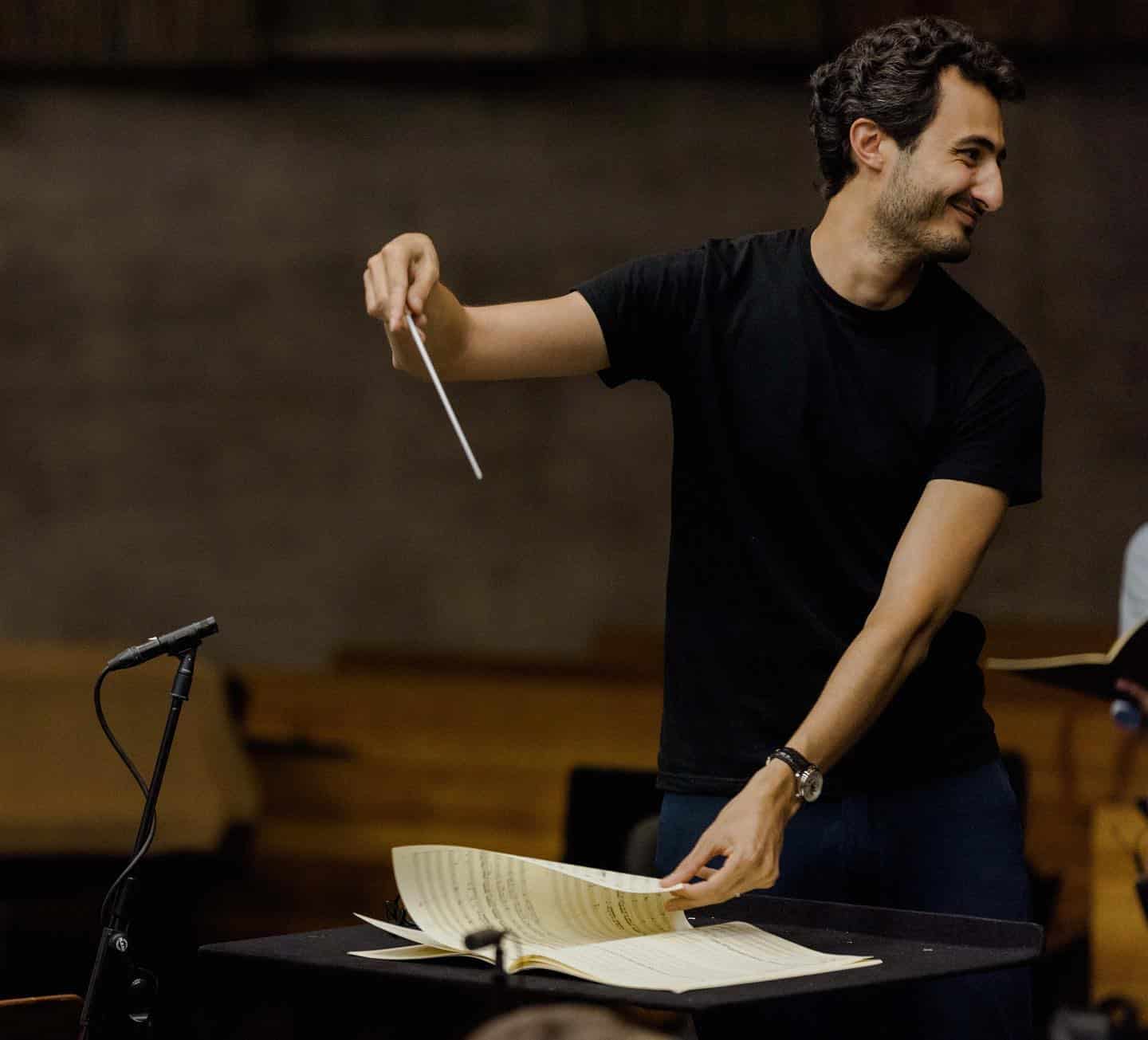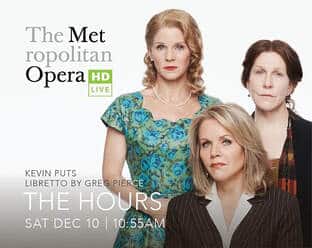Sherlock Holmes ‘played a fake Stradivarius’
mainAn Edinburgh academic, Dr Rachael Durkin, has gone on the trail of every reference to violin playing in the Conan Doyle stories. We know that Sherlock played a Strad and collected pedigree violins.
It does say in A Study in Scarlet that Holmes “prattled away about Cremona fiddles, and the difference between a Stradivarius and an Amati”.

But Rachael has come up with evidence that Sherlock was conned into buying a fake Strad.
In short, the very strong implication in both the Real Cremona and the Doyle books is that the Stradivaris are not genuine. They are products of the Victorian forgery trade.
Which begs the question: if Doyle deliberately wrote this detail into the Holmes books, what was he trying to say about him? Perhaps it points to the detective as a flawed protagonist, cutting through his greatness at solving crimes to remind us he was not infallible.
Read the full investigation here.






Quite remarkable for Dr. Durkin’s lack of command of deductive reasoning. How very ironic. Wholly unconvincing. I’m puzzled as to why she, a student of the history of the viola d’amore, wasted time on this and why the Conversation, which boasts its “Academic rigor”, published it.
You must be fun at parties.
Interesting, because I thought about adding a comment to the effect that this might be a bit of fun in a different context. Or she might have written a summation on a crime fiction blog, though that would be more perilous, for on the most serious of those, very knowledgeable Sherlockians lurk and tend to pounce upon this sort of thing. But, as I mentioned, she chose to place it in a journal whose masthead boasts of academic rigor. I’m a retired academic, so claims of that sort do not escape my attention and I tend to pounce. Your response seems to suggest that perhaps you think the article silly, a party-piece, and upon that we would certainly agree.
Academics have way too much spare time to idle away on daft things. The main reason why we have no longer any proper classical music worth hearing anymore is that the profession of jobbing composer no longer exists. No one is composing operas and symphonies in dusty old attics anymore. Academics with salaried posts now knock out the odd wrong note, as their income does not depend on folk buying their stuff or listening to it they do not care. In any case it is all subsidised by grants and the tax payer.
I guess you would know. The grant that supported your Treatise on the Binomial Theorem must have been most generous, else how could you have afforded that charming painting by Greuze?
As neither Durkin nor I is a composer, I think we must regard your comment as a non-sequitur and file it accordingly. The question of composers in university music departments has resulted in serious problems, though not necessarily that which bothers you, but those must await an appropriate occasion.
Moriarty’s claim that academics have “too much spare time” diverges from my experience of the academic profession, although he/she may be right that we waste time on “daft things”. Unfortunately, most of these “daft things” (a notable recent example being the paperwork for the TEF, ostensibly about teaching excellence but based on yardsticks which have little to do with teaching; and do not start me on the REF, an exercise in hoop-jumping which has come to dominate the lives of academics and instigate a whole industry of consultants and strategists) are imposed on us by politicians and bureaucrats who are determined to stamp out the idea of academic freedom.
However, perhaps Moriarty knows about a university where academics do genuinely have “spare time”. If he/she would be so obliging as to name it, I have no doubt that the institution in question will be inundated with job applications. And, who knows, some of the appointees may indeed use this so-called “spare time” to write an opera or symphony to Moriarty’s exacting taste.
As for Moriarty’s discussion about the “jobbing composer” (or lack thereof), it should be mentioned that composers have, throughout the ages, relied on patronage of one sort or another, and/or had other jobs. Bach had the church (and some teaching duties which he did not seem to enjoy), Haydn had a Hungarian aristocrat, Beethoven had a circle of aristocratic connoisseurs in Vienna (who agreed to pay him a stipend, conditional only upon his remaining in Vienna and on his giving the Archduke Rudolf lessons, but with no strings attached as to how many or how few compositions he should complete), and Wagner had Prince Ludwig of Bavaria (Wagner was also a brilliant fundraiser and even better at fleeing creditors without repaying them!). There may, arguably, be some exceptions, but they tended not to have long, happy lives, even if some were great composers (e.g.: Mozart).
A fine and observant comment, SVM. Very happily, I retired from my History position before that inundation of intrusions and paperwork descended. There are among academics as many lazy people and, as Richard Feynman said, there are as many idiots among my colleagues as there are, per capita, in the general populations. And there are daft research projects. In other words, it is, mutatis mutandis, just like any other profession. The great menace is the dominance of contracted research which inevitably compromises freedom of thought, for it is mostly the case that the client wants the research to have a specific outcome. But those intruders you mention are very happy with if it brings money to the university. Quite often it only brings money to the pockets of the researchers, on top of their salary — double-dipping. At many universities in North America, as much as 60% of ‘academic’ research is contracted. In a sense, that’s a threat to academic freedom, but one those academics don’t resist. A very unhappy side-effect is that the arts and humanities disciplines, rarely contracted, start to seem unproductive (of money) to the intruding mandarins.
I think Moriarty is using the term ‘jobbing composer’ incorrectly. The great composers you mention did get money for composing, but only very occasionally did the money come with a condition as to what they should compose. Jobbing composers are those like composers of film music who always write to specifications. The ones you cite were geniuses and so would have composed regardless, as Schubert did in some poverty. Chopin, Schumann, Mendelssohn, Brahms, Dvorak, Tchaikovsky, et al., are examples of the many composers of genius who were rarely if ever ‘contracted’, so to speak, to compose by anyone or for anyone. For all those we’ve cited composing was reflexive, for such is the nature of genius.
Recently I visited my club in London, the ROSL and after a splendid dinner we had a very interesting talk for members and guests on music by none other than Alfred Brendel. Afterwards, I raised the question of the present state of contemporary classical music. The case I put forward for discussion was that no one today is composing symphonies and operas for money in dusty old attics as the jobbing composers used to do over a century ago. Instead of jobbing composers, the composition of new classical music is now in the control of salaried academics, whose income no longer depends on anyone buying their music . This is unlike the generation of composers who lived in the 19th century and earlier who depended on sheet music sales and performing for income. This is because it is now subsidised by the tax payer, grants and commissions. Consequently it does not really matter whether anyone likes this new music or not or even wants to listen to any of it. Thankfully it exists for only a short time within mostly academic circles and is then rapidly forgotten, rarely it is heard on the BBC or at concert venues since concert organisers know full well audiences will resist it. On the whole, academics do not make good creative artists, it is rather as Bernard Shaw rightly said, “Those who can do, those who can’t teach”. At the end of the discussion, the general consensus among members and guests was that the challenge for composers today is how to compose works which audiences will want to hear more than once and which will be remembered by posterity. The coalition of cacophonic chaos established by last century’s tuneless wonders must now end. Even Alfred Brendel agreed!
Here is a real fiddle story about Dietmar Machold.
http://www.classical-music.com/news/stradivarius-violin-dealer-sentenced-six-years-jail-fraud